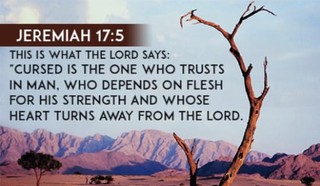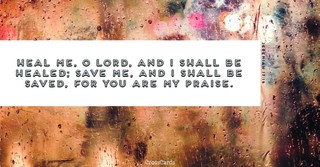- Recent Translations
- All Translations
Jeremiah 17:19-27
Share
Settings
Restoring the Sabbath
19 This is what the LORD said to me: “Go and stand at the gate of the people, through which the kings of Judah go in and out; and stand at all the other gates of Jerusalem. 1Jeremiah 17:19-27 Meaning and Commentary
INTRODUCTION TO JEREMIAH 17
This chapter is a further prophecy of the destruction of the Jews, with the causes of it, their sins, as their idolatry, which was notorious; of which their own consciences, their altars, and their children, were witnesses, Jer 17:1,2 for which they are threatened with the spoil of their substance and treasure, and discontinuance in their land, Jer 17:3,4 as also their confidence in an arm of flesh, which brought the curse of God upon them, when such are blessed that trust in him; and the difference between those that trust in men and those that trust in the Lord is illustrated by very apt similes, Jer 17:5-8, the source of which vain confidence is the wicked heart of man, known to none but God, Jer 17:9,10 and the vanity of it is exposed by a partridge sitting on eggs without hatching them, Jer 17:11, and their departure from God, by trusting in the creature, and in outward things, is aggravated by their temple being the throne and seat of the divine Majesty; by what God is to his people that trust in him; and by the shame and ruin that follow an apostasy from him, Jer 17:12,13, wherefore the prophet, sensible of his own backslidings, prays to be healed and saved by the Lord, who should have all the praise and glory, Jer 17:14 and then relates the scoffs of the people at the word of God by him, another cause of their ruin; declares his own innocence and integrity; prays for protection and security from fear in a time of trouble; and for confusion, terror, and destruction to his persecutors, Jer 17:15-18, then follows an order to him from the Lord, to go and stand in the gate of the city, and exhort all ranks of men to the observation of the sabbath, with directions how to keep it, which had not been observed by their fathers, and which was another cause of their ruin, Jer 17:19-23, and the chapter is closed with promises of blessings in city, court, and country, in church and state, should they religiously observe the sabbath day; but if they profaned it, the city of Jerusalem, and its palaces, should be burnt with fire, Jer 17:24-27.
Cross References 1
- 1. (Nehemiah 13:15–22)
Footnotes 1
- [a] Hebrew Shephelah or lowlands; that is, the western foothills of Judea


